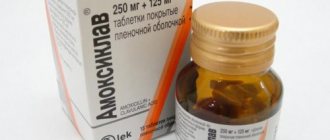Home » Dogs » Dog health » Fish oil for dogs, benefits and method of application
Fish oil is as beneficial for dogs as it is for humans. In properly selected doses, it can prevent health problems and protect the animal from serious diseases. The use of natural dietary supplements for pets, especially small dogs, is practiced by many veterinarians. Thus, the growing body receives useful substances and microelements, which are essential for its full development.
Beneficial properties of fish oil
The product is obtained from the liver or carcasses of fatty fish: cod, herring, mackerel, etc. The main feature of fish oil is the presence in its composition of a whole complex of useful components:
- polyunsaturated amino acids Omega 6 and 3 - help maintain metabolism and synthesize vital substances in the body;
- oleic acid and palmitic acid - streamline metabolism, gently stimulate the immune system;
- minerals such as iodine, bromine and phosphorus have a positive effect on the nervous system, ensuring better communication at nerve synapses;
- Vitamins A and D have a positive effect on vision, the condition of hair, skin, teeth and mucous membranes, and facilitate the transport and penetration of calcium into cells.
In addition to the main components, fish oil contains additional components, but they are not very well absorbed by the body and are not of particular value.
By taking fish oil, the animal body receives the full development of almost all internal systems:
- musculoskeletal;
- cardiovascular;
- visual and auditory;
- nervous;
- immune.
Adding fish oil to your animal's diet will bring many benefits. In some cases, this is the only way to nourish his body with nutrients in the required quantity.
The effectiveness of the drug is noticeable already in the first days after prescription and administration. The dog becomes more active, more cheerful, and the condition of its coat and skin improves. The drug is especially useful for puppies from the first month of their life.
Why include it in your dog’s diet: benefits
It turns out that fish oil is somewhat more important for dogs than for people. If for humans this is a source of Omega-3, then dogs receive vital vitamins A and D from this substance.
Did you know? In England, in 1849, the hunting greyhound Bang, while chasing a hare, made a record jump of 9.14 m in length. Ultimately, the hare was caught.
Unlike humans, our pets' skin is not able to synthesize solar vitamin D, and their liver is not able to produce retinol (vitamin A) from vegetables.
Therefore, for dogs, fish oil is the only source of these beneficial substances, which also solves several other important problems:
- Vitamin A, when interacting with D, is responsible for vision, its sharpness, and the ability to see in the dark. A shiny, beautiful coat and healthy skin for a pet are also possible only if there is a sufficient amount of retinol in the body.
- Vitamin D is fundamentally important for puppies, as it prevents developmental delays and the occurrence of rickets. In addition, it is involved in the process of calcium absorption and the growth of the skeleton and teeth.
- Oleic and palmitic acids stimulate metabolism in the dog’s body and activate the immune system.
- Omega-3 and 6 promote metabolic processes in the body, participating in the production of important elements.
- Iodine, bromine and phosphorus affect the nervous system, ensuring better communication at nerve synapses.
To maintain the health of dogs, vitamin preparations such as Gelacan and Dufalight are used.
Many dog owners note that the effect of the drug becomes noticeable in the very first days after starting to take it. The coat begins to shine, and the pet’s well-being improves: it becomes more active and cheerful.
Veterinarians often prescribe this supplement as part of therapy for allergies, when hormonal medications cannot be used, and for dermatitis.
Allergies in dogs are increasingly occurring due to the use of artificial food, genetic mutation or overly active vaccination.
And although there are no instructions for using fish oil for dogs as such, it is still necessary to know the approximate dosage for animals of different ages in order to prevent an overdose.
Indications for use for dogs
After the first visual examination, the veterinarian can determine the need to take fish oil. The drug is quickly absorbed and absorbed intracellularly. After a course of administration, blood viscosity and the risk of thrombosis are reduced, microcirculation is improved, and mineral metabolism is accelerated. Indications for prescribing fish oil are as follows:
- prevention of possible heart and vascular diseases;
- atherosclerosis;
- rickets;
- thrombosis and thrombophlebitis;
- gastrointestinal diseases;
- eye diseases;
- reduced immunity;
- inflammatory and allergic skin diseases.
Regular intake of the dietary supplement helps strengthen the limbs and get rid of lameness due to arthritis and arthrosis, and reduces the manifestation of allergic eczema and dermatitis.
Criterias of choice
You can find fish oil for dogs on sale in the form of liquid in a bottle or capsules. There is no difference between them, the only thing is that the drug in bottles is cheaper. Some dogs like capsules, but in general, the choice depends only on your preferences.
Fish oil capsules are much easier to give dogs than liquid fish oil.
Veterinary fish oil for dogs is sold in specialized stores. Its composition is the same as that of the drug from a regular pharmacy. When choosing, you should focus on the following criteria:
- Northern varieties of fish contain more vitamins, so check the composition before purchasing;
- the presence of salmon oil will help better absorption of the drug;
- Make sure that fish oil packages are stored properly. In too warm rooms, the fat will simply die and become unfit for consumption;
- It is desirable that the supplement be extracted from the muscle mass of the fish, and not from their liver, since the latter contains an excess of vitamin A, which in large doses is harmful to the dog’s body;
- fish oil must be highly purified;
- The composition should not contain additional additives such as rosemary or lemongrass.
The right product can significantly improve the health and well-being of your pet in a short time.
conclusions
Fish oil is very beneficial for your pet, but an overdose of it is dangerous. Healthy adult dogs can be given regular veterinary fish oil. For puppies and small breeds – highly purified. Salmon oil is a more dietary and pure product. The ratio of Omega 3 and Omega 6 in the product is optimal. Contains vitamin A, D, E, iodine, phosphorus, sulfur. It promotes calcium absorption and is used as a prophylactic. It is important to know exactly how much fish oil to give your dog and to take breaks from taking the drug.
I write about dogs based on the experience and knowledge gained during my studies as a veterinarian, work in my specialty, and simply from observing my pets.
Salmon oil is an ideal energy food supplement for our pets. Thanks to its high content of Omega-3 fatty acids, it aids digestion and complements our dogs' diet. The main benefits of these acids provided by salmon oil are the prevention of various diseases and the improvement of the immune system, which leads to improved health and therefore an improved quality of life for the animal.
Salmon oil is high in DHA and EPA, two healthy fatty acids found in fish and seafood. DHA or docosahexaenoic acid has a positive effect on the cell membrane, which promotes the growth and development of our dog. Eicosapentaenoic acid or EPA is a very good anti-inflammatory agent that will help the circulatory system function properly.
How to give salmon oil?
The best way to include salmon oil in your dog's diet is to mix the supplement with something your pet enjoys. You can also give it as a treat, or put a little in the food to improve the taste of the food.
The amount of oil added to the food depends on the size, age, weight and physical condition of your pet. Keep in mind that the main thing is to avoid overdosing when administering salmon oil, which can cause negative side effects. Be sure to check with your veterinarian before starting to feed oil.
A daily dose of salmon oil has several benefits
Continuous administration of salmon oil has many benefits for our animals and it is recommended to give it daily. There is only one basic rule: it is important that Omega-3s are of animal origin rather than plant-based, since the latter are loaded with fats that your dog does not need, in addition to the fact that they absorb animal fats much better.
Salmon oil provides the energy our pets need in everyday life and has many benefits, including:
- Helps maintain healthy hair by enhancing shine, silkiness and density and improving appearance.
- Helps keep joints flexible and take care of them for many years.
- Solves problems of skin irritation and other allergy symptoms.
- Improves digestion and absorption of food.
- Promotes heart health and good circulation.
- Strengthens the immune system.
- Stimulates proper brain development.
Is it recommended for my dog?
Salmon oil, due to its many benefits, is suitable for all types of animals, from puppies to older dogs. But there are certain moments in the life of our pets when we must increase, especially if appropriate, the consumption of these supplements. Puppies have a greater need for essential fatty acids of all types, as do pregnant and lactating bitches.
Salmon oil in the diet of pregnant animals improves the mental development of the fetus, and then the brain of puppies, therefore, is an important condition for their consumption during these important stages of our pets' lives. It is also very beneficial for those animals that are recovering from injury or suffering from a chronic illness.
In short, by including salmon oil in your dog's diet, you will be taking care of his health in a natural and healthy way.
It is known that dogs cannot eat fatty fish, but fish oil, which is obtained from fatty fish, is ok.
However, this product should be given in strictly defined quantities, otherwise, instead of benefit, it can harm your beloved pet.
It should be remembered that fish cannot be replaced with fish oil, which is a dietary supplement, but not a complete product. It contains a large amount of vitamin D, as well as vitamins A and E, omega-3 fatty acids.
Fish oil is obtained from cod liver, as well as from mackerel, herring, salmon muscle mass and some other fatty sea fish. It should be noted that salmon is extracted from salmon oil, not fat. And many dog breeders prefer oil, because it is better absorbed.
Methods of using fish oil for dogs, dosage by age
The result of taking fish oil directly depends on the method of its use and dosage. You should not practice on your own and prescribe the drug for your dog. This is done exclusively by a veterinarian, based on the individual characteristics of your pet.
It is better to select fish oil in jars in capsules for dogs up to one year old and in jars for adults. You can give the drug, starting from the first days of the dog’s life, a few drops at a time and gradually increasing the dosage to normal. It is especially important to take during the cold season, when sunlight is not enough to replenish the body with vitamin D.
Fish oil dosage for puppies
Taking the drug from an early age eliminates delays in mental and physical development. Depending on age, the dosage for puppies is as follows:
- up to a month - one capsule or half a teaspoon per day. Gradually, the dose of fish oil for dogs increases;
- up to six months - 2 capsules or 2 teaspoons per day;
- up to one year - 3 capsules or 3 teaspoons per day.
For better absorption of lactose, fish oil is added to cottage cheese 2-3 times a week.
If you are giving the drug daily, mix it with your morning meal. One course of treatment is two weeks with a break of a week.
Make sure that your puppy does not experience any side effects such as upset or allergies. If you notice any abnormalities in the health or well-being of the animal, you should stop giving the drug and consult a specialist.
How to give fish oil to adult dogs, instructions for use
For adult dogs, taking a dietary supplement helps prevent diseases of the musculoskeletal system, and for older dogs - the cardiovascular system. It should be remembered that if the animal is artificially fed with dry food, then it probably already contains a complex of vitamins, so fish oil is either not given at all, or the dosage is adjusted.
Adult dogs are given fish oil 1.5-2 teaspoons or 2 capsules daily for 3-4 weeks. If there are no additional indications for increasing the duration of use, then fish oil is given 2-3 times a year.
The dose of fish oil for pregnant dogs is one capsule/teaspoon until 30 days, then it is increased to 2 capsules or 1.5 teaspoons until the end of the term. From the second week, breastfeeding women begin to be given the same amount as pregnant women up to 30 days.
How and how much to give to your pet
Since it is not advisable to take fish oil on a regular basis, it is usually given in courses with a break for a certain period of time, unless the veterinarian prescribes a different order.
Each owner usually decides for himself how best to give fish oil to his dog, but most often it is added to soup and cottage cheese (it is believed that dairy products provide better absorption). Although, unlike people, our pets consume fish oil with much greater enthusiasm, since they are absolutely not bothered by its pungent smell.
Important! The dosage of the supplement is determined based on the daily requirement of vitamin D for dogs of a certain age and breed.
Puppy
Up to six months, puppies need to receive about 200 units of vitamin per 10 kg of weight for 3-4 days. If we translate this figure into the measure of fish oil, we get about 0.5-1 tsp. or 1-1.5 capsules.
People usually start using the supplement from the first month of life, 2-4 drops at a time. During the first doses, carefully monitor your pet to see if he has a rash, diarrhea, or other signs of the body’s rejection of the supplement. If everything is in order, then over the next couple of months give the baby the drug every two weeks with a break of a week, gradually increasing the dosage by six months.
After the sixth month of life, a grown large breed puppy should be given 2 tsp. fish oil, while representatives of small species will still need one.
Important! If for puppies it is important to consume fish oil in order to ensure healthy growth and development, then for large breeds it is a means of combating problems of the musculoskeletal system, and for older dogs it is the prevention of diseases of the cardiovascular system. The latter is possible due to the presence of useful compounds in the drug, the task of which is to prevent blood clots and cholesterol plaques in the animal’s blood.
Adult dog
In adult individuals, although the period of active growth has ended, the need for fish oil has decreased slightly. It is given in the amount of 1.5-2 tsp. or 2 capsules for 3-4 weeks.
It is enough to take 2-3 courses of similar duration per year, if there is no reason for additional use:
- period of recovery after illness;
- pregnancy or nursing puppies;
- taken in the autumn-winter period to strengthen the immune system.
For adult dogs, fish oil is often replaced by taking multivitamin supplements, which come as an addition to natural food.
If your pet eats only dry food (high quality!), then it does not need additional vitamins. It is important that your dog’s dry food is of high quality, balanced and safe. Find out more about premium and super-premium food. For both puppies and adult dogs, not only the dosage of fish oil is important, but also its quality.
Side effects
Fish oil has no serious side effects, and those that appear are most often associated with incorrectly selected dosage or individual intolerance. In the latter case, the animal may begin to vomit and have diarrhea. This may not be due to the contents of the capsule, but to its shell. In this case, you can switch to the liquid version of the additive or pierce and squeeze the product out of the shell. If the allergy does not go away, you should stop giving the drug in any form.
Fish oil may cause allergies in some dogs
Adverse reactions not related to allergies are as follows:
- an excess of vitamin A in the body causes dizziness, deterioration of the skin and coat, loss of appetite, and disruptions in the reproductive system;
- an excess of vitamin D leads to problems with blood vessels, increased urine production, calcium deposition in soft tissues and further osteoporosis;
- hypervitaminosis from constant overdose can provoke hepatitis or diabetes;
- consuming large amounts of fish oil can cause gastritis;
- with regular overdoses, blood clotting is reduced, which can lead to bleeding;
- Heavy metal poisoning is possible if fish oil is poorly purified or produced in violation of standards.
You should not strive to saturate your pet with vitamins, no matter what. This will cause a completely opposite reaction. It’s better to underdose than to provoke an overdose and harm the dog. Before purchasing, read the instructions for use, especially the contraindications section.
Use for hair loss
Use of fish oil for hair loss is allowed only as prescribed by a veterinarian. Self-medication is unacceptable .
If the dosage is incorrectly selected, the effect will be the opposite: instead of the desired improvement in the condition of the coat, more intense baldness begins.
It is necessary to identify the cause of negative changes. The product is used if hair loss occurs due to a deficiency of its constituent substances.
Possible contraindications
Like any medicine, albeit of natural origin, fish oil has contraindications for use. It is not recommended to give it to dogs with a weak digestive system, as well as those with liver problems and diseases.
The drug is contraindicated if the dog simultaneously receives a vitamin complex that already contains vitamins A, D, E. This will lead to an overdose with all that it implies. The same applies to industrial feed with multicomplexes. It is better to take a separate course of fat-soluble vitamins. You should also take a break before surgery or if you have open wounds on the skin.
To avoid negative consequences, it is better to buy fish oil in veterinary pharmacies or pet stores. Manufacturers of such dietary supplements produce drugs designed specifically for animals. There you will also be able to receive qualified assistance in choosing and advice on the correct use of the product depending on the breed and age of your quadruple friend.
Reviews
Victoria, Cherepovets
“I feed the dog natural food. At some point, Zvezdochka became lethargic and inactive. The vet said it was a lack of vitamins. I recommended buying an omega complex at a veterinary pharmacy. I bought fish oil. I add it to food according to the instructions. After two weeks of taking it, I take weekly breaks. The dog came to life, again joyful and active, as before.”
Irina, Moscow
“In winter, my dog was often sick, as it turned out, due to a lack of vitamins. As I understand it, those animals that eat food do not need to be given additional supplements. But my dog ate regular food. I bought a multivitamin complex that contains all the microelements that dogs need. Everything is fine now.
Gennady, Tolyatti
“As a veterinarian, I can note that you should not give your pets vitamins without first consulting a specialist. Hypervitaminosis has never brought anyone any good. This is especially true for fat-soluble vitamins. The greatest harm to the body is caused by an overdose of vitamins A and D. I recommend giving omega complexes to healthy animals no more than twice a year.
All loving owners try to give their pet everything they need. In addition to care, walks and nutrition, the animal is often given all kinds of vitamins and supplements, including fish oil. Is it worth doing this or not? How much and how to give fish oil to an animal?
To begin with, you need to understand what it actually is? The main value of fish oil is the presence of Omega-3 acid, which is part of it. Many people remember that earlier, when medicine was at a lower level, fish oil was a kind of “panacea” for all diseases, it was recommended to everyone, if not for treatment, then for prevention. Of course, this usefulness of the product is a little exaggerated, but there are definitely benefits from it.
Veterinarians almost unanimously advise giving fish oil to pets. This is especially true for small puppies. Fish oil helps them develop fully and contributes to the formation of stronger bones and a healthier body.











